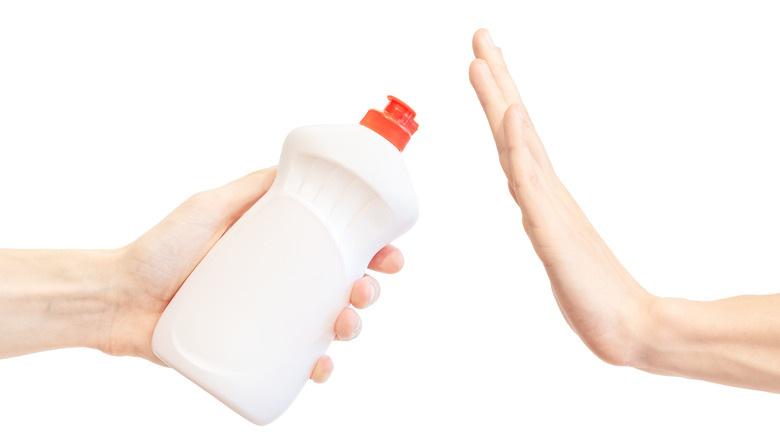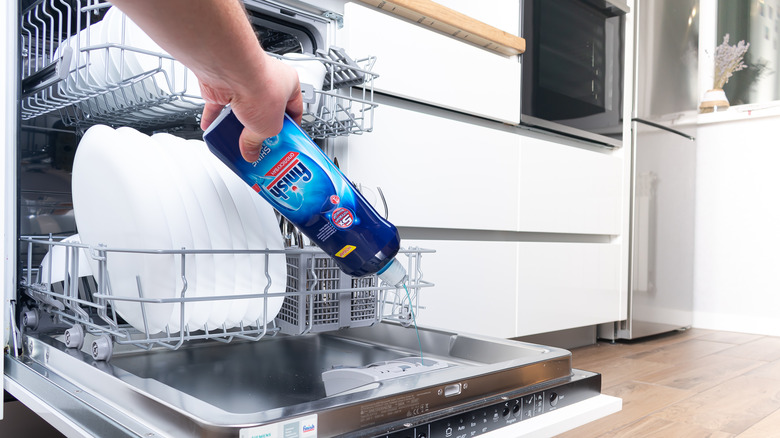Reasons To Stop Using Liquid Dishwasher Detergent Immediately
Searching for the right dishwasher detergent can be intimidating. With shelves upon shelves of different brands and various types of detergents, it could be confusing making the right decision for your dishwashing needs. Of the major detergent choices, they come in liquid, powder, and single-dose solutions.
Liquid dishwashing detergents contain a variety of components, some of which help to bind together hard water, some are meant as bleaching agents for cleaning the dishes, while others are simply there to make the smell of the solution pleasant for the buyer, according to Reckitt. This type of product can be more gentle on dishes because it lacks abrasive materials that could be harsh on dishware.
Powder dishwashing solutions allow you to scoop the desired amount of product depending on how large your dishwashing load is. The ingredients can contain bleaching chemicals, disinfectants, as well as finishing agents that can leave your dishes residue-free. However this type of detergent can be harsher on delicate dishware, so could be better suited for pots and pans, as per Canstar Blue.
Finally, gel pods and dishwashing tablets seem to be a popular option because they don't require additional measuring and ultimately contain the same ingredients as the other dishwashing products. One major catch may be that these products tend to cost more in the end. Compared to liquid detergents, which range from 5 to 11 cents per load, gel pods can cost you anywhere from 9 to 36 cents per dishwashing load, according to Consumer Reports.
Switch out your liquid dishwasher detergent for powder or tablets
Now that you know the difference between some of the products that are available to you, there are some reasons why you should stop using liquid dishwasher detergents and opt for powder or tablet items. Liquid detergents have the ability to spread out to every inch of the inside of your dishwasher, which may be good to clean your dishes. However, according to American Home Shield, this could also mean that it gets into hard-to-reach areas of the dishwasher, which could ultimately cause some corrosion.
Also, staying away from liquid products will allow for more thorough cleaning of your dishes every time you run them through your dishwasher. This is because dishwashing detergents rely on both enzymes and bleaching agents to work together in your dishwasher to rid your dishware of stains, germs, and foodstuff. When these two cleaning agents are together in liquid form, they tend to react ahead of time in the bottle, according to Reviewed. Since the bleach destroys the enzymes before even reaching your dishwasher, this means that liquid detergents tend to only have either bleaching power or enzyme power, not both. When the detergent is in powdered or tablet form, the reaction will not occur until it is in your dishwasher and mixed with warm to hot water. Plus, liquid detergent may not work well in homes that have hard water as it doesn't contain the same limescale and spot-removing properties that powder detergents have.

